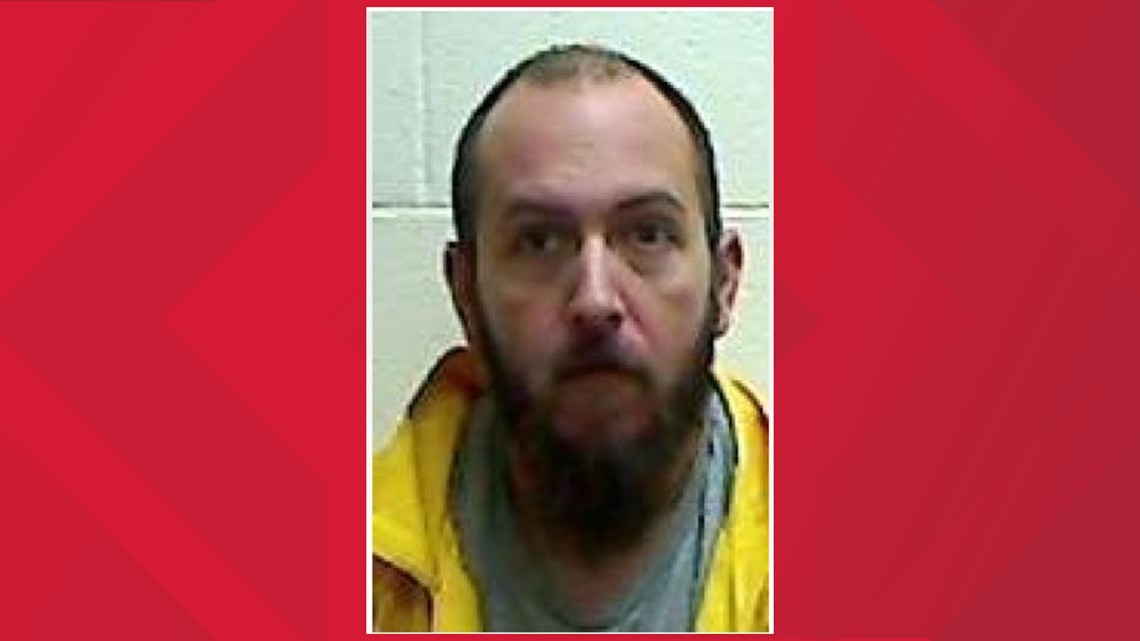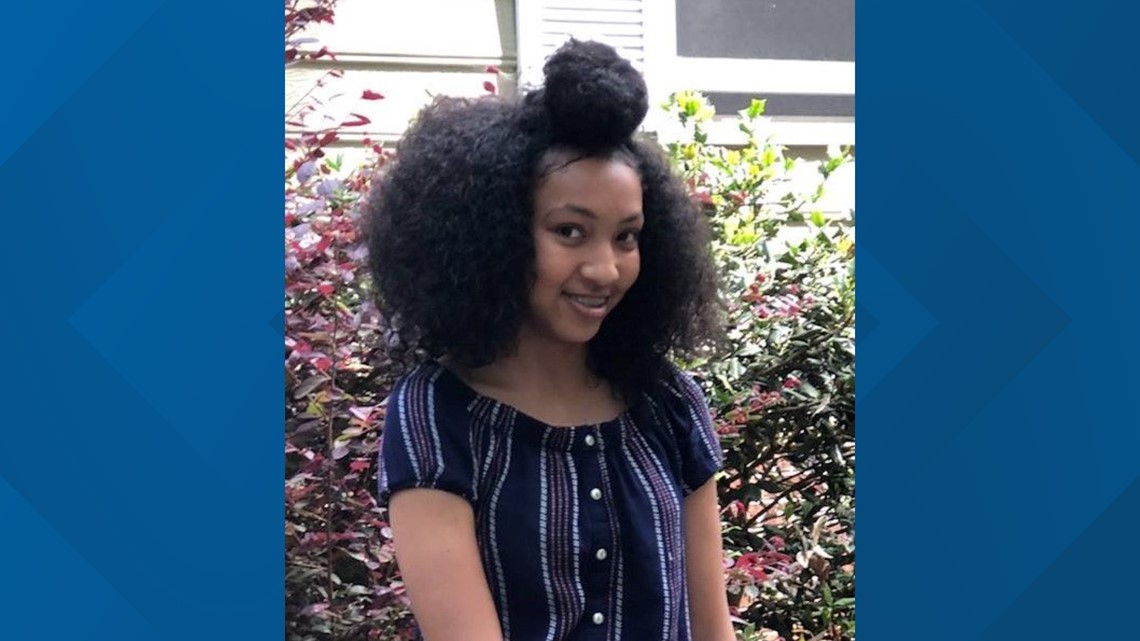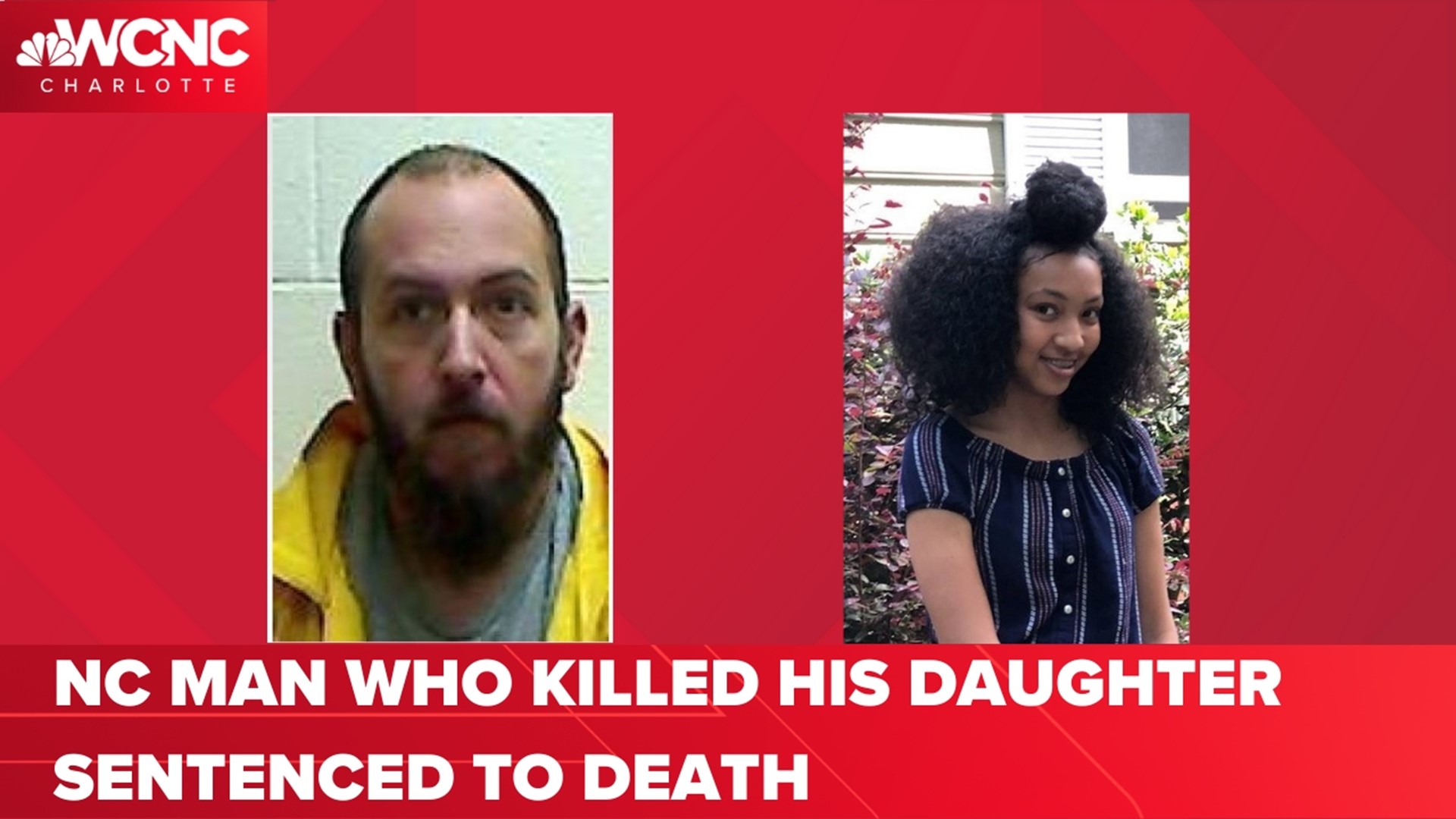MONROE, N.C. — Editor's Note: This story discusses sexual violence. While specific acts are not discussed or described, reader discretion is advised.
Joshua Lee Burgess, 35, has been sentenced to death less than three years after he tortured and killed his teenage daughter, Zaria Burgess, in Monroe, North Carolina.
On Friday, the jury handed down Burgess' sentence after three hours of deliberations, according to the Union County District Attorney's Office. The sentencing came after a three-week trial.
Burgess killed his 15-year-old daughter on August 18, 2019, according to the district attorney's office. According to investigators, he psychologically and sexually tortured Zaria for 22 hours at his home along Airport Road. He then cut her throat.
In addition to being convicted of first-degree murder, Burgess was convicted of statutory rape, three counts of statutory sex offense, and first-degree sexual exploitation of a minor. In addition to a death sentence, Burgess was handed an additional 76 years of incarceration.


At the time of Zaria's murder, law enforcement said the case was an example of "pure evil." The 15-year-old was visiting her father for the weekend. After the killing, Burgess reportedly told the Union County Sheriff's Office he had killed someone.
At the time, Zaria Burgess was a rising high school sophomore. She was on the dance team and in the marching band at Monroe High School. Her band director Alan Sturdivant previously said she was full of energy and was an ideal member of the band's dance team.


Joshua Burgess will now be housed at Central Prison in Raleigh, North Carolina, which is where the North Carolina Department of Public Safety says male death row offenders are housed. The state's execution protocol dictates death by pentobarbital, a type of lethal injection. Burgess' execution date must be scheduled at least 15 days after his sentencing, but no more than 120 days.
If you or a loved one is facing domestic violence, help is readily available. You can call the National Domestic Violence Hotline at 800-799-7233 or text START to 88788. Resources for help are available in both North Carolina and South Carolina.

